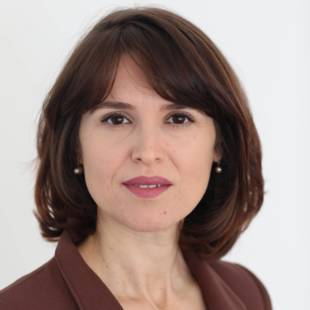- What is the state of 5G deployment in your country, and specifically of the deployment of standalone (SA) 5G networks?
- What is being done to ensure that a wide range of operators and industrial companies, from small to large, have access to frequencies?
-
What public tenders have awarded spectrum licenses?
- . What were the criteria for awarding each of the tenders?
- What are the conditions of the spectrum license?
- What is the price, and how is it calculated?
- Have there been any issues with the implementation of the 5G projects? Have there been any decisions regarding non-compliance with 5G concession obligations?
- Is there a long-term spectrum plan or announcements for future tenders?
- If 5G-specific rules are drafted, what do they say?The regulatory framework focuses on:
- Are 5G network sharing or spectrum sharing agreements in place? Is there any focused 5G network or spectrum sharing regulation?
- What are or will be the rules for granting competitors access to new 5G networks once they are deployed?
- What comments have been made regarding 5G cybersecurity and possible use of Chinese technology, including regulation?
- Is there any project regarding 6G in your jurisdiction?
jurisdiction
-
Albania
- Angola
- Australia
- Austria
- Belgium
- Bosnia and Herzegovina
- Brazil
- Bulgaria
- Canada
- Chile
- China
- Colombia
- Czech Republic
- France
- Germany
- Hong Kong
- Hungary
- India
- Italy
- Japan
- Kenya
- Luxembourg
- Macau SAR
- Malaysia
- Mauritius
- Mexico
- Monaco
- Montenegro
- Morocco
- Mozambique
- Netherlands
- New Zealand
- North Macedonia
- Norway
- Oman
- Peru
- Poland
- Portugal
- Romania
- Serbia
- Singapore
- Slovakia
- Slovenia
- South Africa
- South Korea
- Spain
- Sweden
- Switzerland
- Turkiye
- USA
- Ukraine
- United Arab Emirates
- United Kingdom
1. What is the state of 5G deployment in your country, and specifically of the deployment of standalone (SA) 5G networks?
Albania has begun deploying 5G, with a focus on non-standalone (NSA) networks that leverage existing 4G infrastructure. SA 5G networks, which operate independently of 4G, are in their initial stages. Full implementation is planned for 2025, starting in the major cities.
2. What is being done to ensure that a wide range of operators and industrial companies, from small to large, have access to frequencies?
Albania's spectrum allocation process is designed to be inclusive and transparent. Open tenders segment frequency blocks to encourage participation by operators of various sizes. Industrial stakeholders can apply for private spectrum allocations customized to their operational needs.
3. What public tenders have awarded spectrum licenses?
Some spectrum licenses have been granted through competitive public tenders conducted by the Electronic and Postal Communications Authority (AKEP).
3.1. What were the criteria for awarding each of the tenders?
Tenders were evaluated based on:
- Bidder technical and financial capabilities.
- Deployment obligations, including speed, coverage, and timeline commitments.
- Alignment with Albania's national digitalization objectives.
3.2 What are the conditions of the spectrum license?
License conditions include:
- Obligations to provide coverage in both urban and rural areas.
- Compliance with international standards for speed, latency, and security.
- Regular reporting requirements to monitor progress and adherence to targets.
3.3 What is the price, and how is it calculated?
Pricing involves a reserve price set by AKEP and competitive bidding outcomes. Factors influencing reserve prices include:
- Trends in regional and global spectrum demand trends.
- Economic conditions and market dynamics.
3.4 Have there been any issues with the implementation of the 5G projects? Have there been any decisions regarding non-compliance with 5G concession obligations?
Minor delays have occurred, primarily due to issues in obtaining municipal approvals for infrastructure development. AKEP closely monitors progress and enforces compliance, implementing corrective measures when necessary.
4. Is there a long-term spectrum plan or announcements for future tenders?
AKEP has a forward-looking spectrum plan that includes periodic reviews, provisions for emerging technologies such as 6G, and allocations for public safety and industrial innovation.
5. If 5G-specific rules are drafted, what do they say?The regulatory framework focuses on:
- Encouraging infrastructure sharing to minimize costs and redundancy.
- Setting out obligations for comprehensive coverage, including underserved rural areas.
- Implementing cybersecurity measures aligned with EU guidelines.
6. Are 5G network sharing or spectrum sharing agreements in place? Is there any focused 5G network or spectrum sharing regulation?
Yes, regulations promote sharing of passive infrastructure (towers, fibre) and active components (spectrum, antennas). These measures aim to accelerate deployment and reduce costs while maintaining fair competition.
7. What are or will be the rules for granting competitors access to new 5G networks once they are deployed?
Open-access principles are applied to ensure fair competition. Smaller operators are granted access to essential infrastructure on non-discriminatory terms, fostering a competitive and dynamic market.
8. What comments have been made regarding 5G cybersecurity and possible use of Chinese technology, including regulation?
Albania follows rigorous cybersecurity protocols aligned with EU and NATO standards. This includes vendor assessments to meet strict security requirements and restrictions on high-risk suppliers to mitigate vulnerabilities.
9. Is there any project regarding 6G in your jurisdiction?
While Albania has not yet initiated specific 6G projects, it is closely monitoring developments within the EU and plans to align future strategies with broader European initiatives.


.jpg)



